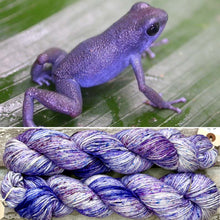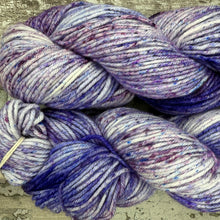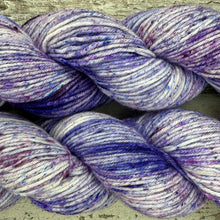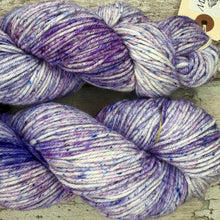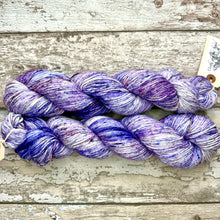
Superwash treated DK yarn with 75% merino wool for softness and warmth and 25% nylon for enhanced durability. It is suitable for approximately 4-5mm needles. About 224 metres per 100g skein. This yarn is presented as a skein. If you would like it caked then this adds 24h to the dispatch time.
About the Frog
Oophaga pumilio cauchero is a subspecies of tropical poison dart frog found only in Bocas del Toro, Panama. It has subtle differences in colouration and behavior that set it apart from its relatives, being a mixture of reds and blues that can appear as close to purple as occurs in any frog species.
These frogs complex reproductive behaviors, with males being highly territorial and vocal during the breeding season. The male then guard the fertilised eggs, ensuring that they remain hydrated and protected from predators. Once hatched, the female transports each tadpole to a small water-filled cavity, often within a bromeliad or other plant and continues to care for them by providing unfertilized eggs as a source of nutrition.
Climate change poses a significant threat as global temperatures rise and weather patterns become more erratic, the delicate balance of humidity and temperature in their forest habitats is disrupted. Amphibians are particularly vulnerable to these changes, as they rely on moist environments for reproduction and skin respiration. Even slight changes in humidity can result in population declines. Conservation efforts are underway to protect Oophaga pumilio cauchero and its habitat. In Panama, several national parks and reserves, such as Isla Bastimentos National Marine Park, offer some protection.




